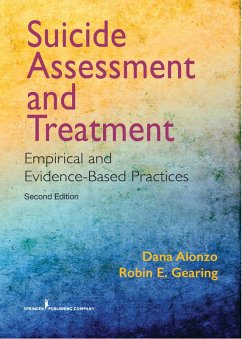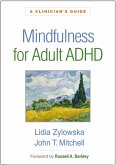The most comprehensive and current evidence-based coverage of suicide treatment and assessment for mental health students and practitioners, this book prepares readers how to react when clients reveal suicidal thoughts and behaviors. The components of suicide assessments, empirically-supported treatments, and ethical and legal issues that may arise are reviewed. Vignettes, role play exercises, quizzes, and case studies engage readers to enhance learning.
Highlights include:
New to this edition:
Highlights include:
- Provides everything one needs to know about evidence-based suicide treatments including crisis intervention, cognitive-behavioral, dialectical behavior, and interpersonal therapies, and motivational interviewing.
- Examines the risk of suicide ideation and behaviors across the lifespan (children, adolescents, adults, and the elderly) and across vulnerable populations (homeless, prisoners, and more).
- Considers suicide within the context of religion and spirituality, age, race and ethnicity including prevalence, trends, and risk factors.
- Explores ethical considerations such as informed consent, confidentiality, liability, and euthanasia.
- Reviews suicidal behaviors across demographics and diagnostic groups including depressive, bipolar, personality, substance-related, and schizophrenia-spectrum disorders.
- Individual and Small Group Exercises allow readers to consider their personal reactions to the material and how this might impact their clinical practice and compare their reactions with others.
- Case Examples that depict realistic scenarios that readers may encounter in practice.
- Role Plays that provide a chance to practice difficult scenarios that may arise when working with suicidal clients.
- Reviews key material in each chapter via Goals and Objectives, Knowledge Acquisition Tests, and Key Points to help students prepare for exams.
- Provides answers to the Knowledge Acquisition Tests in the instructor's resources.
New to this edition:
- Expanded coverage of suicide and mental illness, including updating to the DSM-5 and the addition of new
Dieser Download kann aus rechtlichen Gründen nur mit Rechnungsadresse in A, D ausgeliefert werden.









